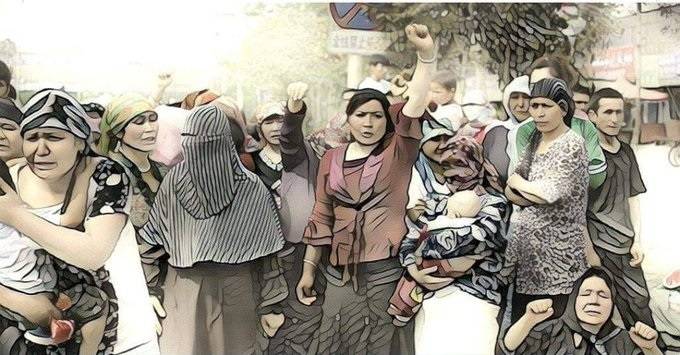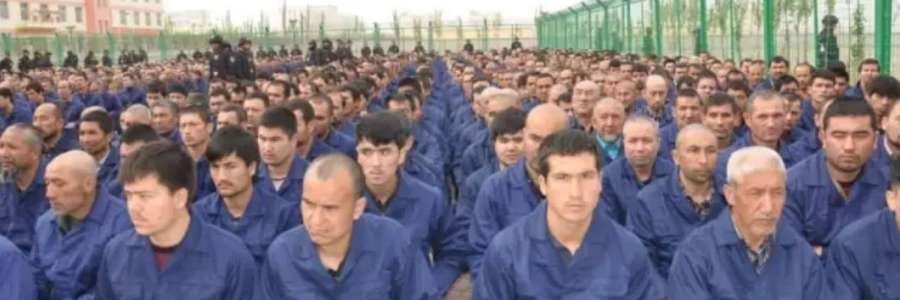Inside the police detention centers, the main goal was to extract a confession from detainees, with sexual torture being one of the tactics,said Jiang…reports Asian Lite News
A former Chinese detective in exile revealed how hundreds of police officers armed with rifles went house to house in Uyghur communities in the far western region of China, pulling people from their homes, handcuffing and hooding them, and threatening to shoot them if they resisted.
Rebecca Wright, Ivan Watson, Zahid Mahmood and Tom Booth, writing in CNN said that the Chinese detective Jiang termed the officials as “psychopaths”.
Inside the police detention centers, the main goal was to extract a confession from detainees, with sexual torture being one of the tactics, Jiang said.
“We took (them) all forcibly overnight,” he said. “If there were hundreds of people in one county in this area, then you had to arrest these hundreds of people.”
In a three-hour interview with CNN, conducted in Europe where he is now in exile, Jiang (Chinese detective) revealed rare details on what he described as a systematic campaign of torture against ethnic Uyghurs in the region’s detention camp system, claims China has denied for years.

“Kick them, beat them (until they’re) bruised and swollen,” Jiang said, recalling how he and his colleagues used to interrogate detainees in police detention centers. “Until they kneel on the floor crying.”
During his time in Xinjiang, Jiang said every new detainee was beaten during the interrogation process — including men, women and children as young as 14, reported Wright, Watson, Mahmood and Booth.
“Everyone uses different methods. Some even use a wrecking bar or iron chains with locks.”
The methods included shackling people to a metal or wooden “tiger chair” — chairs designed to immobilize suspects — hanging people from the ceiling, sexual violence, electrocutions, and waterboarding. Inmates were often forced to stay awake for days, and denied food and water, he said, reported Wright, Watson, Mahmood and Booth.
“Everyone uses different methods. Some even use a wrecking bar or iron chains with locks,” Jiang said. “Police would step on the suspect’s face and tell him to confess.”
The suspects were accused of terror offences, said Jiang, but he believes that “none” of the hundreds of prisoners he was involved in arresting had committed a crime. “They are ordinary people,” he said.
The torture in police detention centers only stopped when the suspects confessed, Jiang said. Then they were usually transferred to another facility, like a prison or an internment camp manned by prison guards.
In order to help verify his testimony, Jiang showed CNN his police uniform, official documents, photographs, videos, and identification from his time in China, most of which can’t be published to protect his identity. CNN has submitted detailed questions to the Chinese government about his accusations, so far without a response.
The US State Department estimates that up to 2 million Uyghurs and other ethnic minorities have been detained in internment camps in Xinjiang since 2017.
China says the camps are vocational, aimed at combating terrorism and separatism, and has repeatedly denied accusations of human rights abuses in the region. (ANI)

